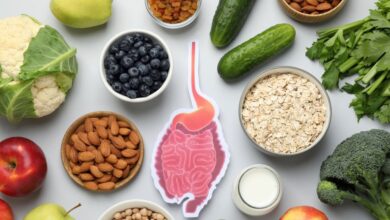One-Quarter of People Undermine the Benefits of Healthy Eating with Unhealthy Snacking

A quarter of the population undermines the benefits of healthy eating by indulging in unhealthy snacks, increasing the risk of stroke and cardiovascular diseases, according to researchers from the School of Life Course & Population Sciences and ZOE. The study delves into the dietary habits of 854 individuals, and the results are published in the European Journal of Nutrition.
Data from the study indicates that half of the participants believe that if their main meals are healthy, the light snacks in between are inconsequential. This trend has negative effects on their health indicators, such as blood sugar levels and fat content, and addressing this could be a simple dietary strategy for improving health.
Dr. Sara Berry from King’s College in London and the lead scientist in the study states, “Given that 95% of us snack between main meals, and almost one-quarter of our calories come from snacks, replacing unhealthy snacks like biscuits, chips, and sweets with healthy options like fruits and nuts is an easy way to improve our health.”
The analysis reveals that 24% of the daily energy intake comes from snacks like cereal bars, sweets, and fruits. The average daily intake of light snacks among people is 2.28 per day, with 47% consuming two snacks a day, and 29% eating more than two.
Contrary to common perception, the analysis shows that inter-meal snacks are not inherently unhealthy; the crucial factor is selecting nutritious products that provide energy. Individuals who frequently consume high-quality snacks such as nuts and fresh fruits are more likely to have a healthy weight, better metabolic health, and reduced hunger compared to those who either do not snack at all or indulge in unhealthy foods.
However, 26% of participants report consuming healthy main meals but unhealthy snacks, including processed foods and sweet treats, which are linked to poorer health indicators and increased feelings of hunger. Unhealthy snacks are associated with a higher body mass index, increased visceral fat tissue, and higher postprandial triglyceride concentrations, all of which are related to metabolic disorders like stroke, cardiovascular diseases, and obesity.
The most popular snacks consumed include biscuits, fruits, nuts and seeds, cheese and butter, cakes, granola, or cereal bars.
The timing of snacking may also be crucial for health. Researchers find that snacking after 9:00 PM is associated with poorer blood indicators. People are more likely to consume high-fat and high-sugar foods at this time.
The quality of food is the driving factor for positive health outcomes. The best way to improve health is to ensure a balanced diet consisting of fruits, vegetables, proteins, and legumes.



